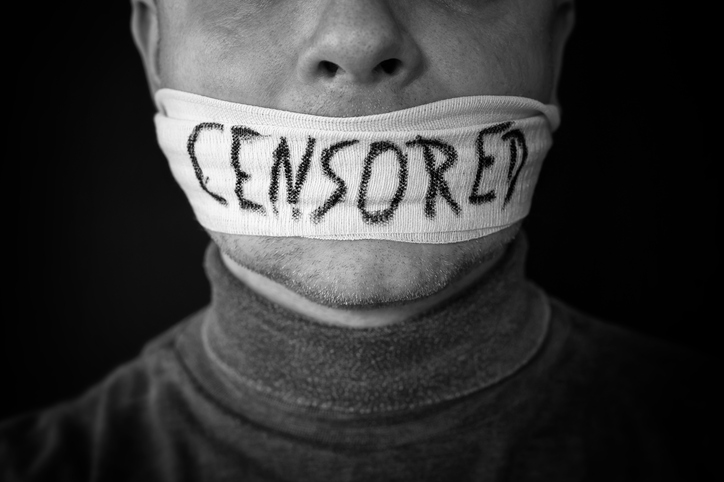An article hypothesizing that fibers in face masks could cause individuals more harm than good was retracted by a federal public health publication.
The article first appeared on the website of the Elsevier Public Health Emergency Collection, a publication arm of the U.S. National Library of Medicine under the National Institutes of Health, on November 22 and is now online at principia-scientif.com. The author, Baruch Vainshelboim, raised questions on the physiological and psychological effects and the impact on long-term health based on his review of the scientific evidence on the safety and efficacy of masks.
Vainshelboim has published previous articles on the NIH’s website and at one time had been affiliated with VA Palo Alto Health System and Stanford University. Upon publication of the article, VA Palo Alto Health System and Stanford University issued statements emphasizing Vainshelboim is no longer affiliated with their organizations.
Hypothesis Only
Vainshelboim starts his hypothesis with a brief review of the three masks in question: N95 masks, surgical masks, and the cloth masks often worn by the general public. The article then points out that the case fatality rate of COVID-19 is under one percent, stating that this fact was confirmed by the National Institute of Allergy and Infectious Diseases.
Deaths, the author notes, have occurred primarily among older, chronically sick individuals, suggesting that the virus exacerbated their conditions to the point of death. Although COVID-19 can cause respiratory distress, Vainshelboim states that what is not clear is “the scientific and clinical basis for wearing facemasks as a protective strategy, given the fact that facemasks restrict breathing, causing hypoxemia, and hypercapnia and increase the risk for respiratory complications, self-contamination, and exacerbation of existing chronic conditions.”
The author adds there is no scientific evidence that masks can reduce illness and death, which has led to his hypothesis questioning the mask’s ability to stop transmission of a virus and considering the adverse effects masks may cause.
Breathing Problems
The issue that has garnered the most attention has been Vainshelboim’s hypothesis on the physiological effects of mask-wearing.
“Wearing facemask mechanically restricts breathing by increasing the resistance of air movement during both inhalation and exhalation process,” Vainshelboim writes. “Although, intermittent (several times a week) and repetitive (10-15 breaths for 2-4 sets), increase in respiration resistance may be adaptive for strengthening respiratory muscles, the prolonged and continuous effect of wearing facemask is maladaptive and could be detrimental for health.”
The author states that masks compromise the chemical components of air that people breathe.
Noting air contains 20.93 percent of oxygen and 0.03 percent of carbon dioxide, which provides “partial pressures” for the gases in the bloodstream, “these gas concentrations significantly altered when breathing occurs through [a] facemask,” Vainshelboim writes. “A trapped air remaining between the mouth, nose and the facemask is rebreathed repeatedly in and out of the body, containing low oxygen and high carbon dioxide concentrations, causing hypoxemia and hypercapnia.”
Too Much for NIH
In its retraction, Elsevier’s editor-in-chief stated that, although “Medical Hypothesis serves as a forum for innovative and often disruptive ideas in medicine and related biomedical sciences,” it has a “strict editorial policy” to not “publish misleading or inaccurate citations to advance any hypotheses.”
The publication gave four specific reasons why the article was taken down, including the “broader review of existing scientific evidence clearly shows that approved masks with correct certification, and worn in compliance with guidelines, are an effective prevention of COVID-19 transmission.”
AnneMarie Schieber (amschieber@heartland.org) is the managing editor of Health Care News.
Internet info:
Baruch Vainshelboim, “Facemasks in the COVID-19 Era: A Health Hypothesis,” Principia Scientific International, March 5, 2021: https://principia-scientific.com/facemasks-in-the-covid-19-era-a-health-hypothesis/?utm_source=feedburner&utm_medium=email&utm_campaign=Feed%3A+psintl+%28Principia+Scientific+Intl+-+Latest+News%29
